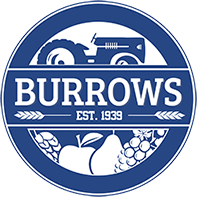Getting Land & Equipment Ready For Spring
 When spring is about to break through the cold, it’s time to get your land and equipment ready for what’s to come. If you’ve been farming for some time, you probably already know that it’s essential to properly prepare your land and farm equipment for harvest. Of course, some of that prep will change depending on you land, climate, crops, etc.
When spring is about to break through the cold, it’s time to get your land and equipment ready for what’s to come. If you’ve been farming for some time, you probably already know that it’s essential to properly prepare your land and farm equipment for harvest. Of course, some of that prep will change depending on you land, climate, crops, etc.
To help you get started, we at Burrows Tractor have compiled the following list. If you need additional information or you want to check out some quality farm equipment for sale, visit our locations in Yakima and Wenatchee, WA as well as North Plains, OR. We proudly serve our friends from Portland, Oregon and the state of Washington.
Test & Prep Soil
It doesn’t matter if your land is a small plot or spread over several acres, the first thing that has to be done is testing and preparing the soil for crops. You check if the soil is ready by taking samples and running a pH test. There are kits you can purchase to do this at home or you can collect a sample and have a lab run the test. This will help you better understand the health of the soil, so you can make an informed decision on how to maximize growth and protect your crops.
There are many ways in which you can prepare your soil; it mostly depends on what you prefer and what your soil needs. For example, if you have hard ground that was frozen solid during the winter months, you’ll need a cultivator to break it up. The next thing you have to take care of are weeds that can affect your harvest. You may be able to accomplish this by hand but it’s easier with a cultivator, especially is you’ve got several acres of land to take care of. You’ll also need to mow and till the farmland area before planting any crops.
Inspect & Test Equipment
Before you start using your equipment, you have to test it. This step is important at all times but more so when your equipment has been sitting around in storage for months on end. It’s best and safest to inspect your equipment when it’s clean. Tidy it up and remove any dirt, mud, oil, or other debris that accumulated in storage.
During your inspection you should check to ensure all parts are working properly. Examine the battery, brakes, tires, lights, mirrors and hitches. It’s wise to start the machines and then walk around them, making sure that everything is functioning correctly. See if there is any damaged hardware or missing parts that should be replaced. You can easily overlook important things during an inspection so take your time and make sure you cover your checklist. If you’d rather have the assistance of a professional, you can contact our service department at Burrows Tractor and get expert help.
Maintenance Steps
Apart from conducting a thorough inspection, you also need to perform maintenance to keep your equipment up to the mark. If it’s not fit to be used in the fields, it’s of no use to you. Maintenance has to be performed on all the equipment you’re going to use, including mowers, weed eaters, tractors, etc. Each moving part should be well lubricated. Check all the fluid levels, like the oil and coolant, and top them off as needed. Don’t forget to check all the hoses, charge all the batteries, and sharpen all the blades.
Crops & Fertilizers
Veteran farmers usually already know what they’re going to be planting in their fields. Sometimes, it’s the size and type of land you’re working on that’s the deciding factor about what crops you can grow. If all this is rather new to you, we recommend you do some research before making a decision. For example, you’ll want to look at both fixed and variable costs along with the prices for each commodity. Remember, these factors should be taken into consideration prior to ordering the seeds.
This is also the right time to decide on a fertilizer. You’ll need to check the results of the soil tests to make that decision. As you probably know, soil requires a certain amount of nutrients to grow, which includes nitrogen, potassium, and phosphorus. Even soil that’s extremely dense in nutrients on its own will still need some type of fertilizer to continue growing throughout the season. Whether you use an organic or chemical fertilizer, it’s critical that you provide your soil the nutrients it needs to successfully harvest your nutrient-rich crops.
We hope this guide helps you get the best results from your field! If you want to upgrade your farm equipment, visit Burrows Tractor at our locations Washington and Oregon. We welcome all our friends from Kennewick, Ellensburg and Richland, WA!
